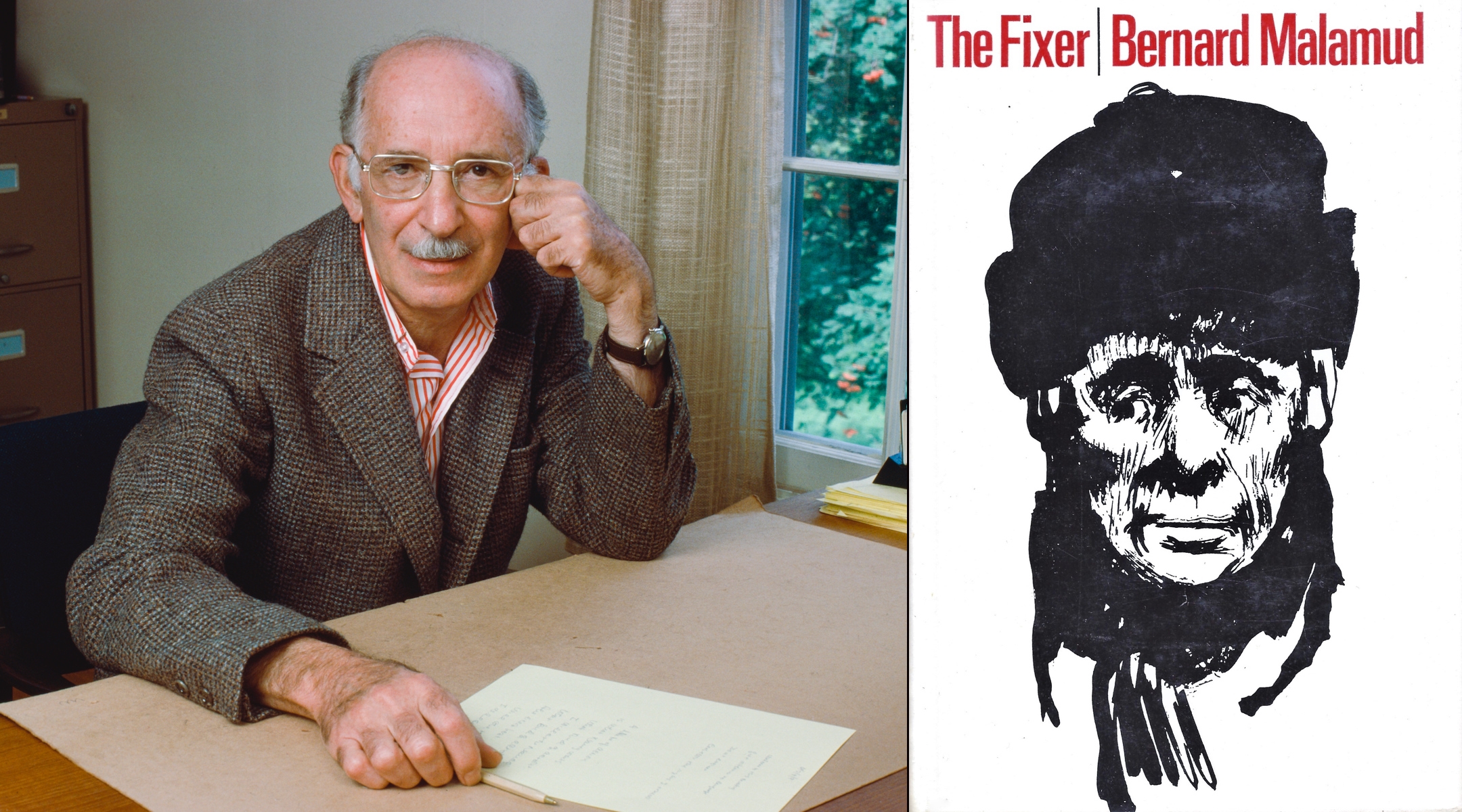(JTA) – A school district in South Carolina will return Bernard Malamud’s “The Fixer,” a Pulitzer Prize-winning novel about antisemitism, to shelves nearly a year after it was removed following a parental complaint.
The decision made Wednesday by a review committee for the Beaufort County School District concludes another episode in which a Jewish book has gotten caught up in a national book-ban push by conservative parents.
The district pulled “The Fixer” and books from school libraries last fall, citing safety concerns for school employees. Malamud’s novel had been on a long list of nearly 100 books challenged by a parent affiliated with Moms for Liberty, an activist group powering the book-ban movement. Booklooks.org, a ratings site often cited by Moms for Liberty chapters, says “The Fixer” contains “controversial religious and racial commentary; hate involving racism; violence including self harm; and profanity.”
The committee voted Wednesday to return “The Fixer” and four other books to school library circulation, according to records of the meeting a district spokesperson shared with the Jewish Telegraphic Agency. The school board must sign off on the decision, but the board has so far signed off on all of the committee’s recommendations. (One other books was removed permanently, while another was placed back in the review process.)
“I’m relieved the committee found the text was appropriate and hope the board agrees to replace it back on the shelves,” Emily Mayer, a Jewish former Beaufort County educator who has been lobbying against the book bans, told the Jewish Telegraphic Agency.
But, she added, “I don’t believe it should’ve been questioned to begin with, as I can’t imagine many students had checked ‘The Fixer’ out of the library as of late anyway. Allowing students access to texts that give them diverse perspectives of historical events helps us make sure history doesn’t repeat itself.”
One person had spoken up specifically in defense of “The Fixer” during a school board meeting this week. “I read this book in high school. It was not in my school’s curriculum, but in the library,” said Elizabeth Robin, a local poet, according to a notes shared with JTA. (The agenda also included new procedures to maintain safety because board meetings have grown raucous.)
Robin offered a description of the novel as a thinly veiled critique of the proponents of book bans, which have mostly targeted books with LGBTQ and racial justice themes.
“‘The Fixer’ is not a novel to be banned, but one that opens a window for students into what happens in authoritarian regimes, and what can happen when scapegoats are chosen based upon prejudice rather than evidence,” she said. “It shows a dark time in history we should not repeat.”
“The Fixer” is not the first Jewish book to be removed following a parental challenge in schools, nor was it the first time such a removal was overturned. A school district in Texas quickly reversed a decision to remove an illustrated version of Anne Frank’s diary following public outcry last year, while a district in Missouri recently voted to keep Art Spiegelman’s Holocaust graphic memoir “Maus” in schools despite concerns that a state law could put educators in legal jeopardy for doing so.
But restorations are not always the outcome. That same illustrated edition of Frank’s diary, along with “Maus,” a Holocaust novel by Jodi Picoult and a children’s book about Purim featuring LGBTQ parents, have been permanently removed from other districts, in all cases because of concerns from parents or officials that their content was inappropriate for children.
“The Fixer” holds special historical significance in this battle, as the novel was also at the center of a 1982 Supreme Court case on the constitutionality of school library book bans. That case ended without a clear precedent from the court.
The novel fictionalizes a 1911 case of a Jewish laborer in Kyiv, Mendel Beilis, who was charged with murdering a Christian boy and using his blood to make matzah — a classic example of the blood libel, an antisemitic accusation that Jews murder children and use their blood for religious rituals.
Beilis’ own family has heavily criticized Malamud over the years for his portrayal of Mendel, even alleging that the author plagiarized his diaries. Yet grandson Jay Beilis, who has long campaigned against the book, told JTA, “I’m not going to celebrate the book being banned.”
Malamud himself, who won the Pulitzer Prize for “The Fixer” in 1967, commented on book bans in the lead-up to the 1982 Supreme Court case. “I wish those school board members and others who want to ban books would make an effort to understand them before shoveling them off library shelves,” he said in 1976, a decade before his death. “If they read ‘The Fixer,’ they might be clamoring to have more students read it.”
JTA has documented Jewish history in real-time for over a century. Keep our journalism strong by joining us in supporting independent, award-winning reporting.






